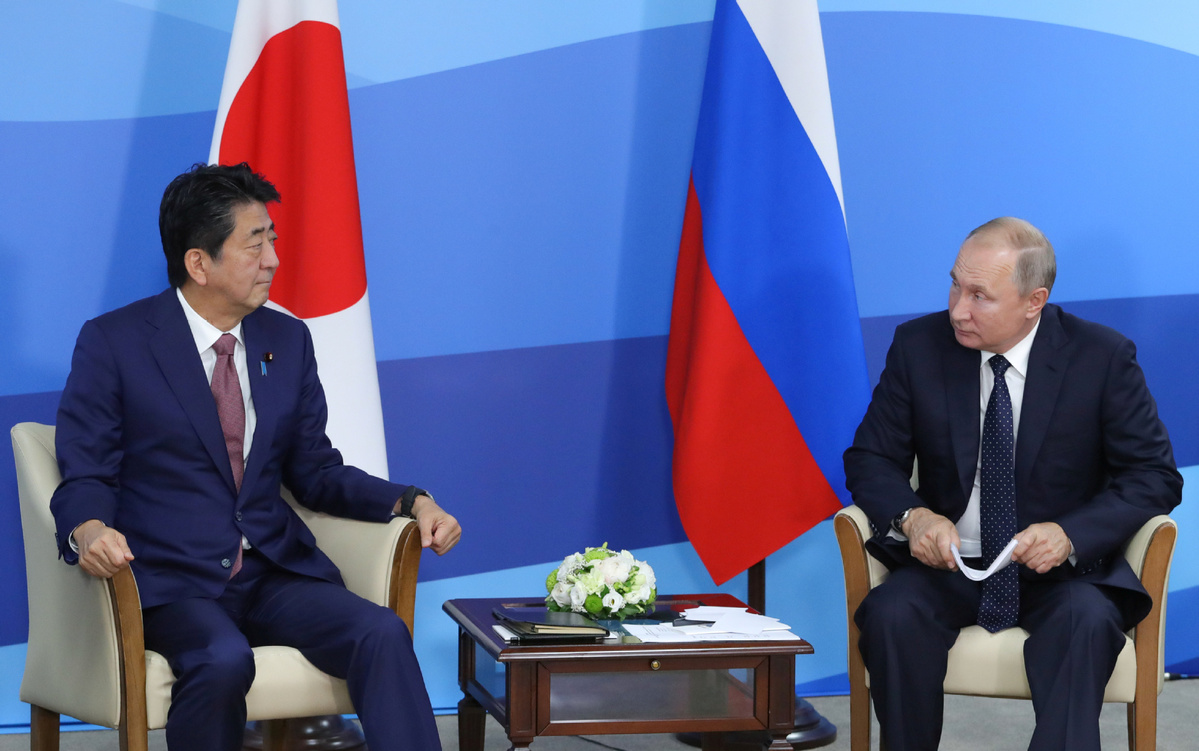Abe's call to sign peace deal rebuffed
By Ren Qi in Vladivostok, Russia | China Daily | Updated: 2019-09-06 09:51

Russian President Vladimir Putin rejected Japanese Prime Minister Shinzo Abe's call on Thursday to sign a peace treaty formally ending their World War II conflict.
Putin made the comment at an economic forum in Russia's Far East city of Vladivostok after Abe called on him to resolve a row between the countries over ownership of a chain of islands. The decades-old territorial spat has prevented the two countries from signing a peace treaty and hindered diplomatic and trade ties.
The four islets central to the dispute are known as the Northern Territories in Japan and the Southern Kurils in Russia.
Both parties have, however, provisionally agreed to discuss furthering joint economic activities on the islands off Japan's northern island of Hokkaido.
Russian-Japanese relations are stable and developing, while bilateral agreements reached at the G20 summit in Japan this year are being implemented, Putin said.
According to Japan's national broadcaster NHK, Abe told Putin that he wanted to conclude a peace treaty and resolve the islands' dispute.
Putin said he hopes a peace treaty could be signed in future, and the two countries could eventually resolve their long-running differences.
"Unfortunately, sadly for us, there are military, defense issues, security issues. We have to understand ... Japan's commitments to third countries, including the United States," Putin said.
Earlier, Abe raised a plan that presumed intensifying bilateral economic ties with Russia in eight fields, including energy, small and medium business, industrialization in the Far East Asia region and increased exports.
However, there are certain difficulties for Russia to implement all these cooperation with Japan, experts said.
"Probably, it would be easy to work with Japan if it could act more independently from the United States, Tokyo's biggest trade partner. I don't think that the removal of anti-Russian sanctions could facilitate Russian-Japanese economic cooperation," said Alexei Repik, head of the Russian-Japanese Business Council.
According to him, until recently Russian and Japanese companies have not paid much attempt to build business ties. The focus was usually put on mega-projects, such as energy, while non-energy fields were downplayed.
"More Japanese companies should come to work in Russia. And more Russian companies should start working in Japan. We need to build a 'double-lane bridge' between Russian and Japanese companies," Repik said.
Alexander Verkhovsky, the director of a Russian research group Sova Center, agreed with Repik, saying reaching a peace treaty between the two countries remains difficult and could hinder bilateral economic cooperation.
Reuters contributed to the story.























